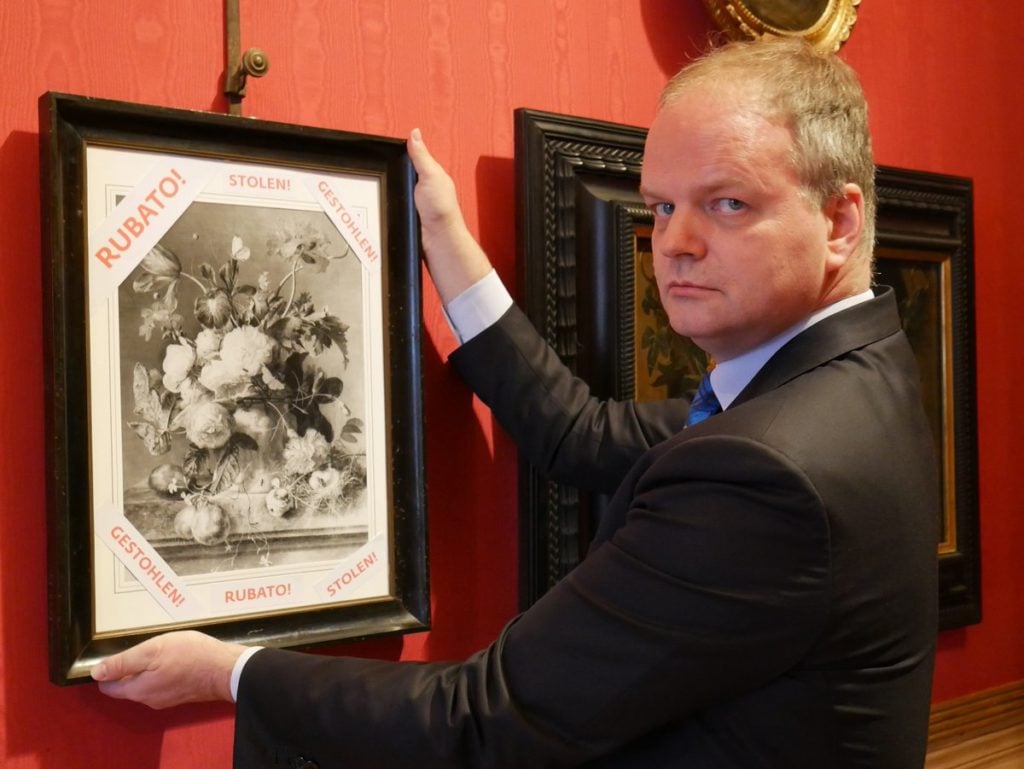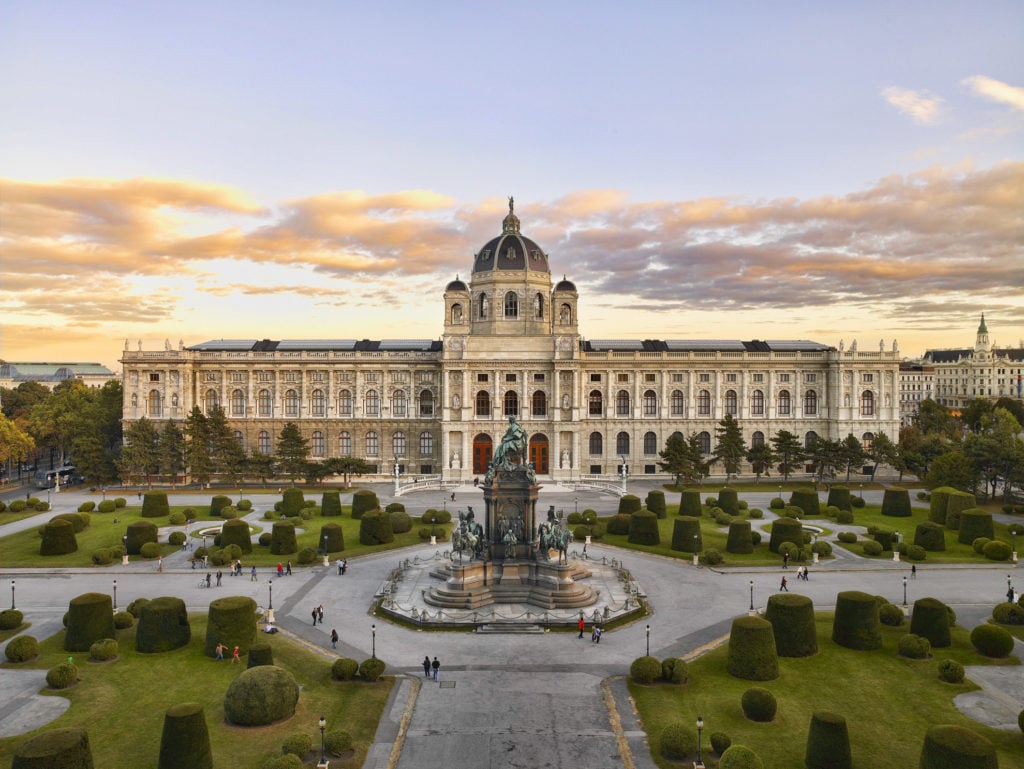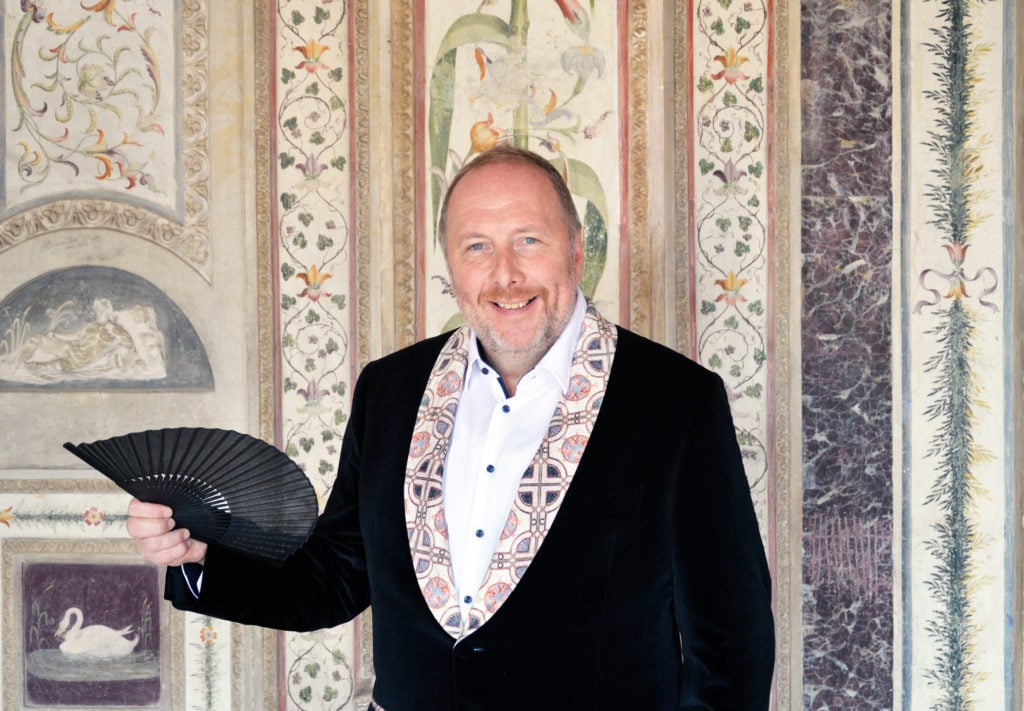Politics
Should I Stay or Should I Go? Italy’s Foreign-Born Museum Directors Get Caught Up in a Political Whiplash
The return of liberal culture minister Dario Franceschini has convinced several museum heads to remain in their posts.

The return of liberal culture minister Dario Franceschini has convinced several museum heads to remain in their posts.

Sarah Cascone

In 2017, Eike Schmidt, the German-born director of the Uffizi Gallery in Florence, Italy, was tapped to become the new head of the Kunsthistorisches Museum in Vienna, a post he was due to take up this coming November 1.
Schmidt made his decision to move to Austria after Italy’s nativist government followed through on efforts to purge its cultural institutions of foreign leaders. At the time, Schmidt was one of seven foreign-born museum directors appointed after a series of reforms were passed in 2015 that opened leadership positions to non-Italians for the first time.
But now, after the sudden collapse of the political block that tried to chase Schmidt and his colleagues out of Italy, a new coalition has emerged and reaffirmed its support of the international directors running its leading art museums—and Schmidt has reversed course, deciding to stay at the Uffizi, which had always been his goal.
“My dream is to remain at the Uffizi,” he told La Stampa last fall. “Florence is my home.”
The Austrian government, which had appointed Schmidt as the director of the Kunsthistorisches Museum, is not pleased. Alexander Schallenberg, the Austrian foreign minister, told the Standard that Schmidt’s decision not to come to Vienna was “highly unprofessional and unprecedented.” The museum’s current director, Sabine Haag, has been asked to stay on in an interim capacity during the search for a new successor.

Exterior view of the Kunsthistorisches Museum in Vienna. Photo courtesy of the Kunsthistorisches Museum.
In recent months, under the leadership of the right-wing nationalist League, Italian culture minister Alberto Bonisoli made clear that he preferred native Italians in top museum posts, prompting Schmidt and other foreign directors to line up jobs abroad following the end of their contracts in October 2019.
Cause for concern mounted in August, when Italy passed new legislation rolling back reforms and increasing government authority over museums. Among the changes was the decision to make the Galleria Dell’Accademia in Florence a subsidiary of the Uffizi, which led to the abrupt firing of Accademia director Cecile Hollberg, a German national.
Then, just as suddenly, the coalition government collapsed, opening space for Dario Franceschini, the center-left politician who spearheaded the reforms that led to the hiring of foreign-born museum heads, to be reinstated as the country’s culture minister.
In the wake of these changes, James Bradburne, a Canadian, has accepted an extension on his contract as director of the Pinacoteca di Brera in Milan.
“I had decided over the summer to refuse an extension even if it were to be offered by the former government, but when Franceschini returned as Minister of Culture, I could not very well say no, could I?” he told artnet News in an email.
But for some foreign directors, the change came too late.
Peter Assmann, director of the Palazzo Ducale in Mantua, had already lined up a new post as head of the Austrian National Museum. This weekend, Assmann will open his last show in Mantua, an exhibition of works by Raphael pupil Giulio Romano, featuring more than 70 works from the Louvre in Paris.
“It’s the highlight of my four years in Italy,” he told artnet News.

Peter Assmann. Photo courtesy of Peter Assmann.
“I made my decision based on the facts at the time,” Assmann said. “I try to be very professional in every step I take, so I had not the faintest idea of even thinking about staying here in Mantua.”
He went on to criticize Schmidt’s reversal. “Eike made some kind of poker game out of the situation,” Assmann said. “If you make the decision, you follow the decision. In our job, we have to deal in years, and not just in months.”
Of all the foreign directors tapped to lead Italian institutions, only three have confirmed plans to remain in their posts: Schmidt, Bradburne, and German scholar Gabriel Zuchtriegel, who is staying on at the Paestum Archaeology Park. Austrian museum head Peter Aufreiter is poised to leave the Galleria Nazionale delle Marche in Urbino to lead the Technical Museum in Vienna.
As of yet, it is unclear how the change in government will effect leadership positions at the Accademia.
“We know nothing officially,” Assmann said, noting that, “among the directors, we all expect Cecile will be returning to her office and that the Uffizi will remain as a autonomous museum—although autonomy in Italy doesn’t mean very much. We’re very dependent on the bureaucracy. The power of the state goes into every corner of your work.”